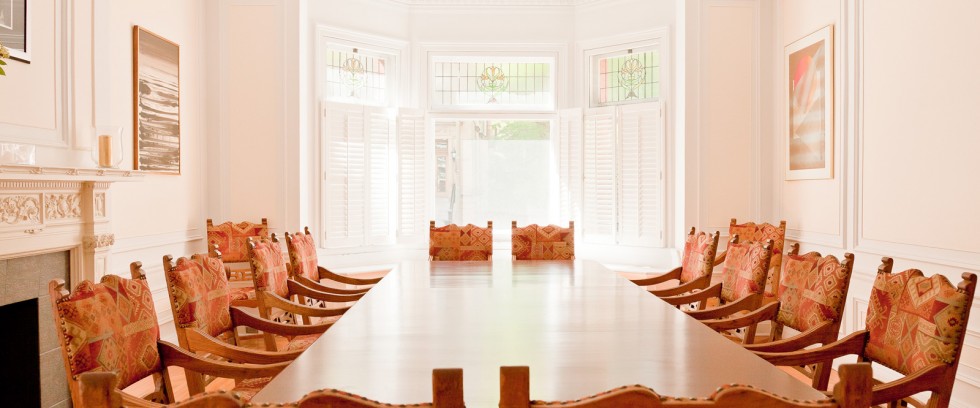
By Paul Omonge (Sauvé Scholar 2011-12)
On the 31st of January 2012, we welcomed Dr Paul Shrivatsava to the Sauvé House for the first time. Dr. Shrivastava has a unique background that combines academic scholarship and teaching with significant entrepreneurial and senior management experience. Currently he is the David O’Brien Distinguished Professor of Sustainable Enterprise at the John Molson School of Business, Concordia University here in Montreal. He also serves as Senior Advisor on sustainability at Bucknell University and the Indian Institute of Management-Shillong, India and on the Board of Trustees of DeSales University, Allentown, Pennsylvania. I was relieved to see Madame Diana Nicholson also in attendance because she is the person that made it possible for me to meet Dr. Paul Shrivastava.
After quick introductions from the Sauvé Scholars, Dr. Shrivastava gradually settled into the narrative of his life, starting with his humble background and childhood in Bhopal, India. He divided his talk into three key learning experiences. First, he advised us, to be successful in life, people should follow their passions and interests, even if it means changing career paths later in life. All good students in India at the time were expected to study Engineering, Finance, Medicine or Law. Any other subject did not fit the picture of a future at the time. Dr. Shrivastava studied Mechanical Engineering for his first degree and co-founded and then managed Hindustan Computers Limited for two years before he changed course. He knew one thing: his heart was never into practicing as an engineer. He soon embarked on a career in sustainable enterprise, management and education. His second piece of advice was “always try to solve the problem”. This is something he picked up from his engineering background that stressed the need to come up with solutions to challenges.
After eight years working at the New York University, publishing hundreds of papers and many books, he decided to leave academia and implement the work that he and his colleagues had been researching and publishing on. While research is very important in providing relevant and updated knowledge, he argued, someone must be willing to use this knowledge to solve the many problems in the society. He is currently implementing certain projects that aim to solve problems. Such projects include the Solar Photovoltaic Power Plant: Rural Mini Grid, in India, and the Climate Resilient and Market Efficient Food Supply Chains – A Canada-India Dialogue. His final piece of advice, tying to his desire to solve problems, featured his other current project, the Art and Sustainable Enterprise Project, in Montreal. He believes the role of the arts has been ignored for centuries in the management of enterprises. In collaboration with ICN Business School, the ARTEM Program in Nancy, France, and the David O’Brien Centre for Sustainable Enterprise at Concordia University, Montreal, he is exploring the use of the arts and art-based methods for understanding enterprise sustainability. The project examines the dynamic relationship between art, aesthetics and the sustainable development of organizations.
He believes (and I agree) that the arts allow us to study those aspects of organizational sustainability that are strengths of aesthetics inquiry, such as sensory and emotional experience, often ignored in traditional management studies. This project will also develop instrumental ways of using the arts techniques (from music, dance, painting, photography, etc.) for teaching and training on sustainability issues. This was like food for thought for the Scholars, especially since we are all working to overcome different societal challenges.
How do you incorporate the arts into management and in decision-making? After his talk, which traversed his over 25 years of experience in management, education and entrepreneurship, the Scholars had so many questions that he was almost (but fortunately not) late for his next meeting. I was glad to have had the opportunity to welcome such an accomplished figure to Sauvé House. My desire is to ensure that the Sauvé Scholars Program enters into a partnership with him and with the David O’Brien Centre for Sustainable Enterprise at Concordia University. This will ensure that future Scholars continue to enjoy and benefit from the resources at the Centre and also from Dr. Shrivastava’s wealth of knowledge, experience and advice.
